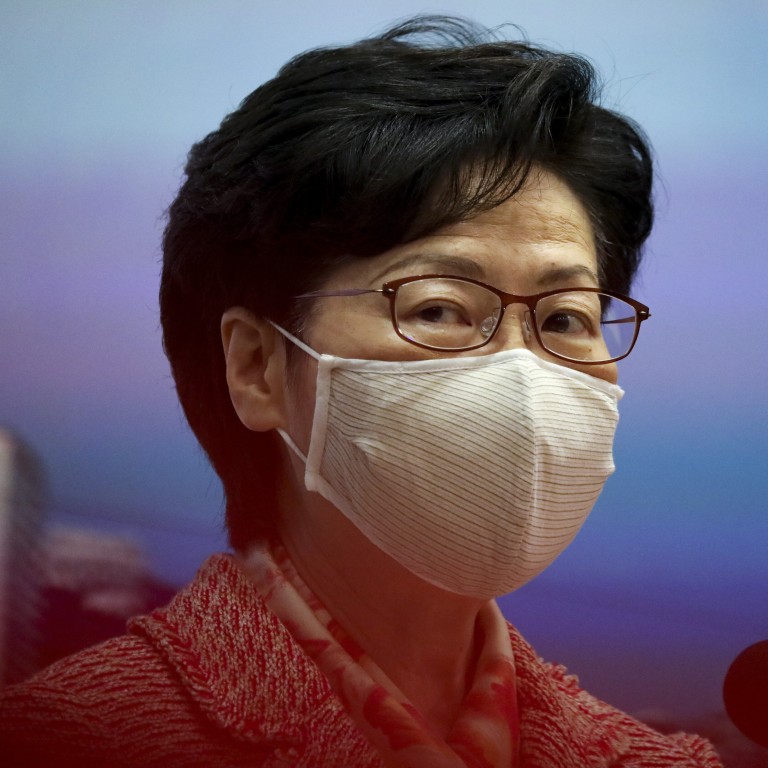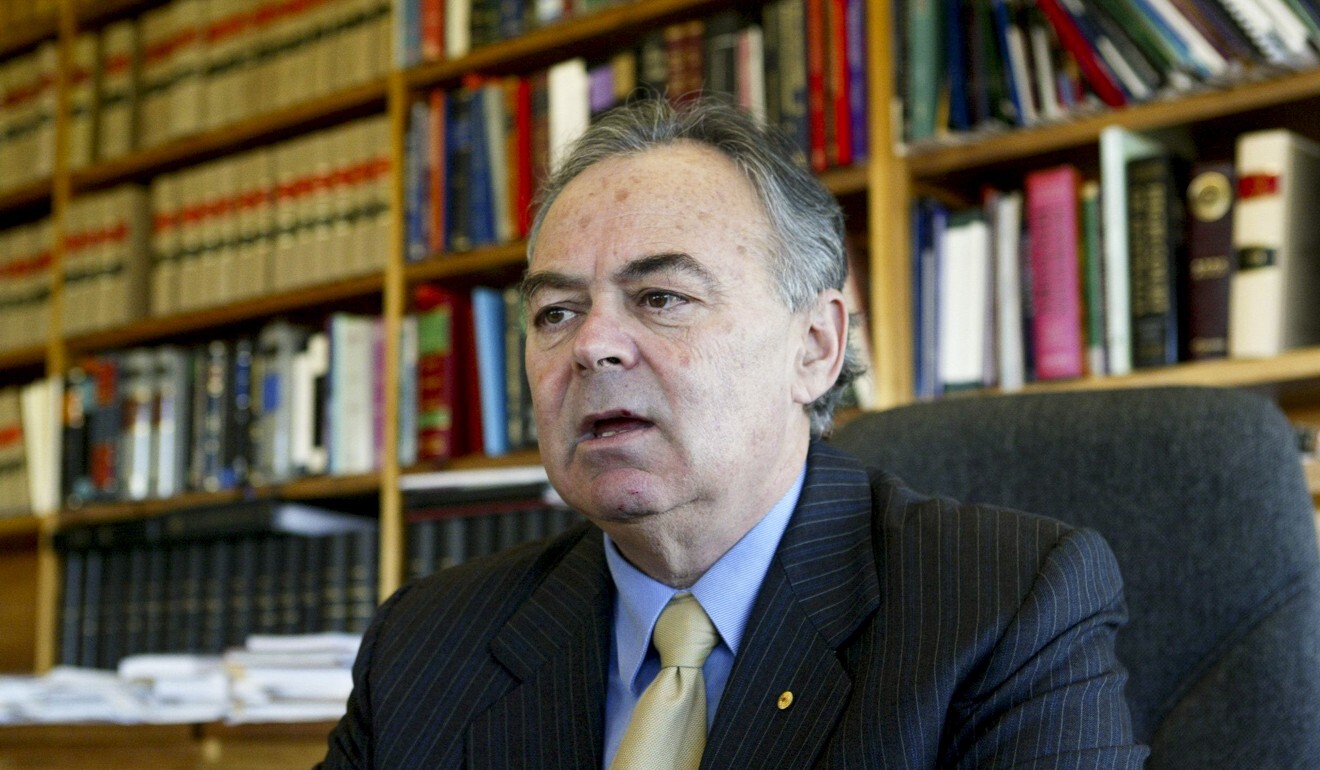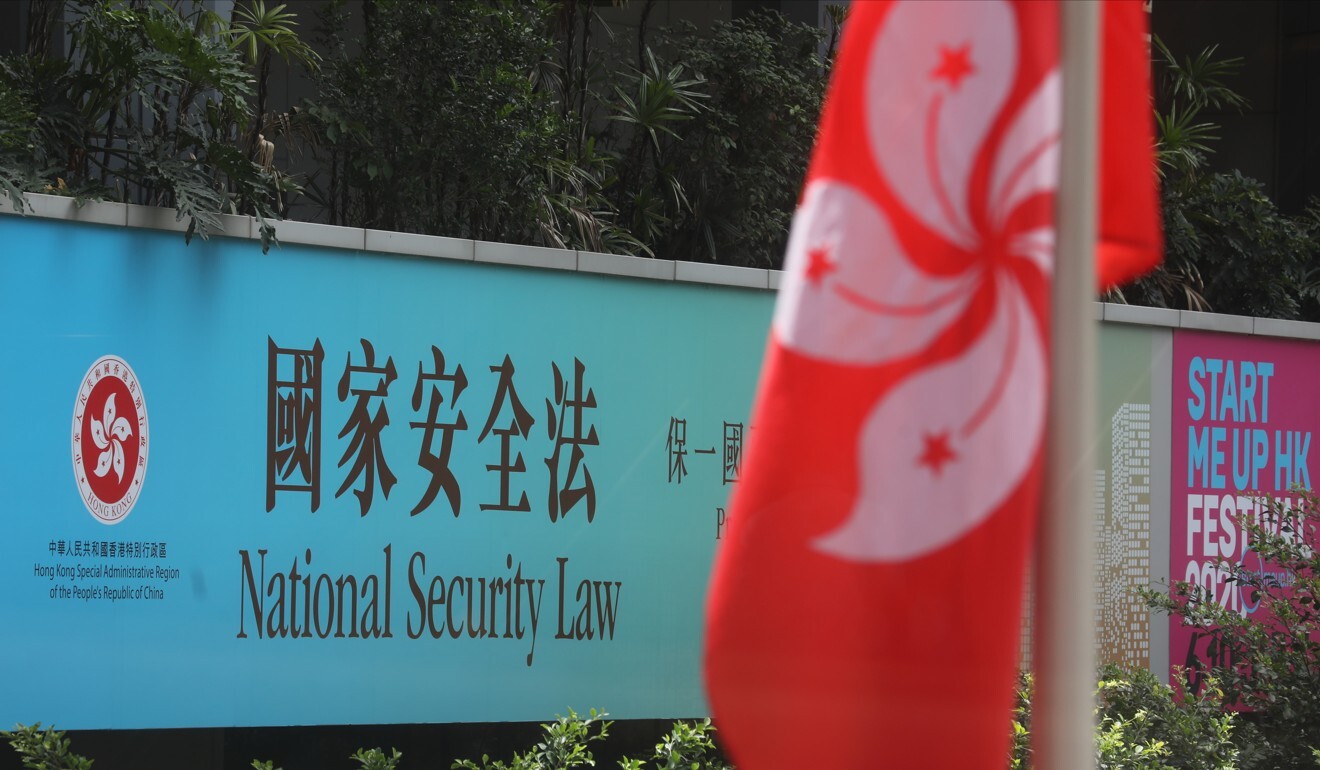
National security law: Australian judge’s early resignation no reflection on Hong Kong’s rule of law, judicial independence, Lam says
- While Justice James Spigelman told Australian broadcaster his departure related to new law’s content, city leader declines to speculate on rationale
- Lam says Hong Kong government, Chinese foreign ministry ‘have gone all out’ to counter international misperceptions of the legislation
Spigelman quit as a non-permanent judge of the Hong Kong Court of Final Appeal on September 2 – two years ahead of schedule – without providing a rationale. But he later told the Australian Broadcasting Corporation he left for unspecified reasons “related to the content of the national security legislation”.

Effective since June 30, the law Beijing enacted for Hong Kong criminalises acts of secession, subversion, terrorism and collusion with external forces.
Lam said she would not speculate on Spigelman’s reason for resigning from his post, despite his comments to the Australian network.
“In his resignation to me, he did not mention at all any reason or any consideration in his decision. So I cannot speculate on his rationale for doing so, except to stress under the Basic Law, we welcome judges from other common law jurisdictions to sit on the Court of Final Appeal,” she said.
Whether it is the constitutional arrangement or the enactment of the national security law, they will not affect judicial independence or the rule of law
“And right now, we have 13 very eminent judges from common law jurisdictions, and I'm sure Hong Kong will benefit from their wise counsel and expertise in adjudicating cases.”
Lam conceded her government had experienced perception issues and damage in the international arena since the enactment of the national security law, criticised for its broad language and potential effects on free expression. But she said those concerns were misplaced.
“Whether it is the constitutional arrangement or the enactment of the national security law, they will not affect judicial independence or the rule of law,” she said.
“The legal system is as robust as ever under the national security law.”
Lam also said the government and China’s foreign ministry “have gone all out” to counter what she said were misrepresentations, as well as to explain to the international community that the new legislation aimed to restore law and order in Hong Kong, and make the city a more attractive business hub.

At the press briefing, Lam also declined to comment on the justice department’s decision to appeal a court’s decision to acquit three people charged with rioting during the 2019 anti-government protests.
“As the chief executive, I do not comment on cases which are undergoing the judicial process, whether that case stems from an action taken by the secretary for justice or the case is undergoing a judicial process,” she said.
A District Court judge on July 25 acquitted three people of rioting and unlawful assembly after they were arrested near, but not at, a protest site.
The judge said they needed to be assembled together to commit the offences, and the common law principle of joint enterprise did not apply.
The justice department appealed the decision to seek clarification over an important question of law, but not to challenge the verdict, a legal document seen by the Post said.

